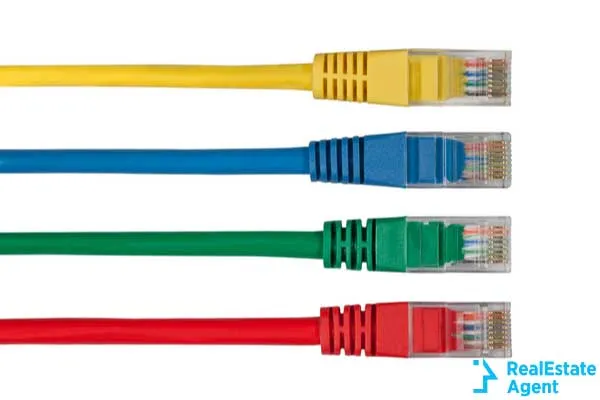
Of all the inventions that changed the real estate game, none have changed it as profoundly and irreversibly as the internet. This technology opened up a world of new possibilities and opportunities for real estate professionals working at every level in the field of real estate. From the lowliest copy room workers to the moguls and brokers at the very top of the ladder, things will never be the same in real estate.
In the years since the invention of this marvelous new technology, things have been travelling at breakneck pace and aren’t showing any signs of slowing down in the near future. New innovations are being innovated before our very eyes every day, and the future is bright and promising as it’s ever been before. Good things are almost certain to be in the cards for real estate professionals and the rest of us alike!
From platforms and services that help real estate agents generate leads to drones and camera systems that have enabled to safely and responsibly provide walkthroughs during the COVID-19 pandemic, there’s an almost overwhelming variety of technology coming out at the moment. Whether you work in real estate or not, it’s all but impossible to keep oneself from appreciating how monumental some of these innovations truly are.
If you do work in this field, you may be wondering what preceded all these innovations. We’re lucky enough to live during a digital renaissance, but what innovations are these phenomenal innovations built on? What did the first footpaths in the digital world look like, before its landscape was crosshatched with superhighways? That’s what we’re going to be exploring today!
The dawn of the digital age

Before we can take a look at the time when digital technology was just getting its start, we have to go back just a little bit further. Back to a time when pens, paper, analogue telephones and typewriters ruled the sphere; a digital dark age, as it were. During this period, real estate agents had no idea how much unfulfilled potential they were about to realize.
If you wanted to make a copy of a document during this time, you used carbon paper. If you wanted to send a professional dossier, you put it in an envelope, bought some stamps and dropped it in a postage box. Things were simpler, sure; but efficiency was hampered by the intrinsic limitations of the most widely used technology.
Personal computers
With the internet yet to be invented, the first piece of digital technology to truly revolutionize the real estate business was the personal computer. Once engineers figured out how to fit a then-astronomical amount of computing power into a handy and compact package (again, relatively speaking), things would never be the same.
All of a sudden, tasks that had previously been time consuming and space intensive just… weren’t. Thousands of documents could be formatted and stored digitally on a hard drive the size of a paperback. If you needed to transfer some of these documents, you could simply copy them onto a floppy disk no bigger than a drink coaster.
The introduction of the personal computer paved the way for an even bigger and more important innovation: the world wide web. Once personal computers were in almost every home and office in the country, engineers and scientists working at CERN had an idea that would change the face of modern civilization forever.
The internet

With the rapidly increased popularity of personal computers, the next logical step seemed quite clear. Instead of transferring data with physical storage, why not create a connection between the sender and the receiver, to circumvent all the hassle of sending and receiving data manually. Computers could already be made to interface with one another; all that was left to do was install the infrastructure.
It started slow, but before long, people began to see the potential of this innovation. Using existing phone lines, engineers were able to connect computers to one another in a functional, albeit limited way. This allowed professionals and amateurs alike to interface with other computers, and more importantly, centralized servers.
Before long, infrastructure was in place to allow for much more rapid data transfers and server access. This paved the way for the creation of platforms that offered a wide variety of services, from online shopping to social media and virtual advertising. Once this door had been opened, things would never be the same in the world of real estate!
You probably saw this coming: that’s right, we’re going to talk about email! This technology may seem a bit old hat now, but at the time email was truly revolutionary. Emails were the first truly accessible way to communicate virtually, allowing even the least technologically-proficient PC user to send and receive virtual communications.
For the first time, you didn’t need to be a tech wiz to harness the overwhelming potential offered by the internet. This technology allowed real estate agents across the country to communicate with their clients and each other seamlessly and instantly. Instead of sending letters that took days to arrive, you could just write up a quick memo and have it arrive in less than a minute!
Emails didn’t just help people communicate over long distances; it also helped them coordinate with one another in office spaces and other professional settings! With the click of a button, you could invite your colleagues to a work dinner, or send them an amusing photo. You may not find them particularly interesting now, but when emails arrived, they took the world by storm!
Digital cameras

Once the internet was commonplace, it became clear that a lot of traditional real estate business practices and tools were quickly becoming obsolete. Lawn signs were being replaced by online ads, paper classifieds were becoming outclassed by online real estate listing sites and countless other established norms were suddenly discarded.
One such norm was the analogue camera. While these still had (and continue to have) a place in the world, the technological upsides of digital cameras simply couldn’t be ignored. Once they were introduced, it wasn’t long at all before they were the gold standard for photos and later videos of listings being sold.
Digital cameras boasted a wide array of features that were universally embraced by the real estate community, such as the ability to simply and easily transfer photos and the ease with which these photos could be edited. Moreover, digital photos could easily be uploaded to real estate classified websites, allowing real estate agents to sell their listings with much greater ease.
Cryptocurrency
This one hasn’t quite achieved its full potential yet, but give it a couple years; it’ll get there! That’s right, we’re talking about cryptocurrency. Built on revolutionary encryption technology, these peer-to-peer digital currencies are taking the world by storm as more and more homebuyers begin to see the potential that they hold.
Across the country, more and more real estate agents are accepting the most popular cryptocurrencies as payment for their services, leading to a snowball effect that has affected thousands. Whether they choose to conduct these transactions in cryptocurrency due to its inherent security advantages or nothing more than ease of use, real estate professionals can expect to see big returns on this choice!
Real estate agents aren’t the only ones accepting cryptocurrency as payment these days; the list of professionals, businesses and services that have begun doing the same is truly staggering. From online vendors to massive supermarket chains and car dealerships, this phenomenon is truly worldwide.
Online real estate resources

Last but not least, we’re going to be taking a quick look at some of the online real estate tools that have become available as the development of technology continues on at its staggering pace. There are a wide, wide variety of tools that fall into this category, such as real estate directories, real estate glossaries and online real estate classifieds. Essentially, if you’re looking for something in particular, there’s a good chance that you’ll find it!
These tools are often even offered free of charge, making it even easier to get what you need in good time. Whether you’re trying to find a real estate agent or are just wondering what the word “accretion” means in the context of real estate, there’s a good chance you can achieve your goals without spending a dime!
On the business side of things, these tools help real estate agents save time and money when facilitating the sale of their listings. Whether this means helping a particular real estate agent generate leads, streamline their schedule or brush up on their real estate knowledge before taking the realtor exam is up to them; what matters is that the information is so readily available!
Conclusion
With all of this said, it’s hard to deny the influence that the digital age has had on the world of real estate as a whole. Whether it means abandoning outmoded forms of advertising in favor of newer and more effective methods or completely restructuring a real estate brokerage, there’s simply no denying that the internet and its accompanying innovations have changed everything. Like it or not, there’s simply no going back to the way that things were before!
Hopefully, we can all find a way to adjust to this rapidly changing and often overwhelming digital landscape. Whether you’re a real estate agent or not, the simple fact is that this is no easy feat, and it can often be quite challenging. Nevertheless, with some patience and determination, we think that it’s a very achievable goal. We wish you the best of luck!
















Have a question or comment?
We're here to help.